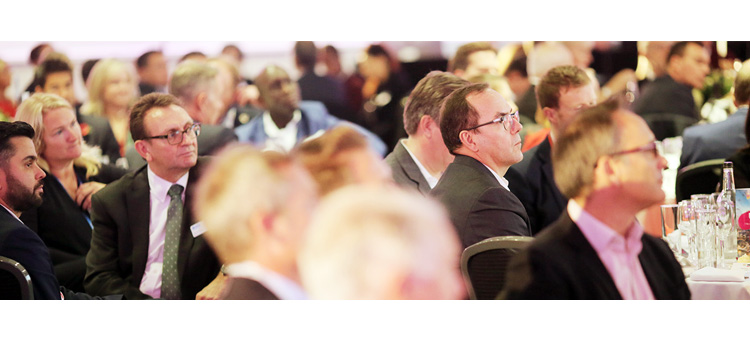London: A top businesswoman working with the UK government on Brexit urged travel bosses at World Travel Market London to plan for the worst possible scenario, in case no deal is agreed.
Speaking at the WTM London Leaders’ Lunch, Susan Hooper advised delegates, “If I were a manager, I would be focused on the implications. ‘No deal’ is the hardest, so plan for the hardest scenario.”
A non-executive board member of the Department for Exiting the European Union (DExEU), Susan Hooper has a wide range of experience in leisure and consumer businesses, including the travel sector. She told the captains of the travel industry at the exclusive event that there are three possible scenarios: a soft or a hard Brexit, or no deal at all.
“The ‘soft’ one is a withdrawal agreement, which will see an attenuated exit from the EU. It makes things easier but we might not realise the benefits for a long time to come,” she told the audience.
“A ‘hard’ Brexit is with a WTO agreement – that will be more decisive as it means leaving customs union. But it’s hard to imagine how two grown-up countries can be happy with a situation where we are not in alignment.”
She said that the civil servants in the DExEU who are supporting the Brexit process are some of the “most high-calibre” people she has ever met. “They are the brightest we have got; working all hours, doing an almost impossible task,” she said.
Hooper was interviewed by Gloria Guevara Manzo, President and Chief Executive of the World Travel & Tourism Council, who asked about Brexit concerns over aviation and immigration in particular. “With aviation, the challenge is the fact that there are no rules to fall back on if there’s no agreement,” said Hooper. “The status quo is what people want for airlines. What we need is ‘no change’ to keep the agreements in place.”
On the issue of immigration, she said, “The UK government has made it clear that it wants control of immigration but freedom of movement for approved passengers. EU citizens’ rights will be respected, but won’t know the details until the final agreement is agreed.”
Michael Ellis MP, the UK Tourism Minister, also addressed the Leaders’ Lunch, saying he and the government “know and recognise” the value of the travel and tourism sector to the UK economy.
“You work in an industry that is of signal importance and we want to make it bigger and more important,” he told the audience.
Commenting on Brexit, he said, “I know you have perfectly legitimate concerns but I want to be clear: the whole of the UK will remain open and welcome to leisure travellers, and open and welcome to business travellers.
“We want a continuation of flights and visa-free travel, and want to continue supporting the inbound and outbound industry.”
Hooper also urged delegates to look at the experience of car-sharing business Uber, where she is a non-executive director.
It launched in the UK market in 2012, and now has almost six million users in the UK.
“It started by leveraging technology to serve customers better than incumbents. It went single-mindedly for the customer experience and ease,” she told the lunch.
She said travel executives could learn from Uber’s example in terms of its work arrangements for employees, who don’t have the traditional benefits of full-time workers, but prefer to have the flexibility to work independently, and have more time with their families.
Hooper admitted that the rapid rise of Uber had alienated many communities and councils but said it was now working with many stakeholders to be a responsible, sustainable and accountable business.





